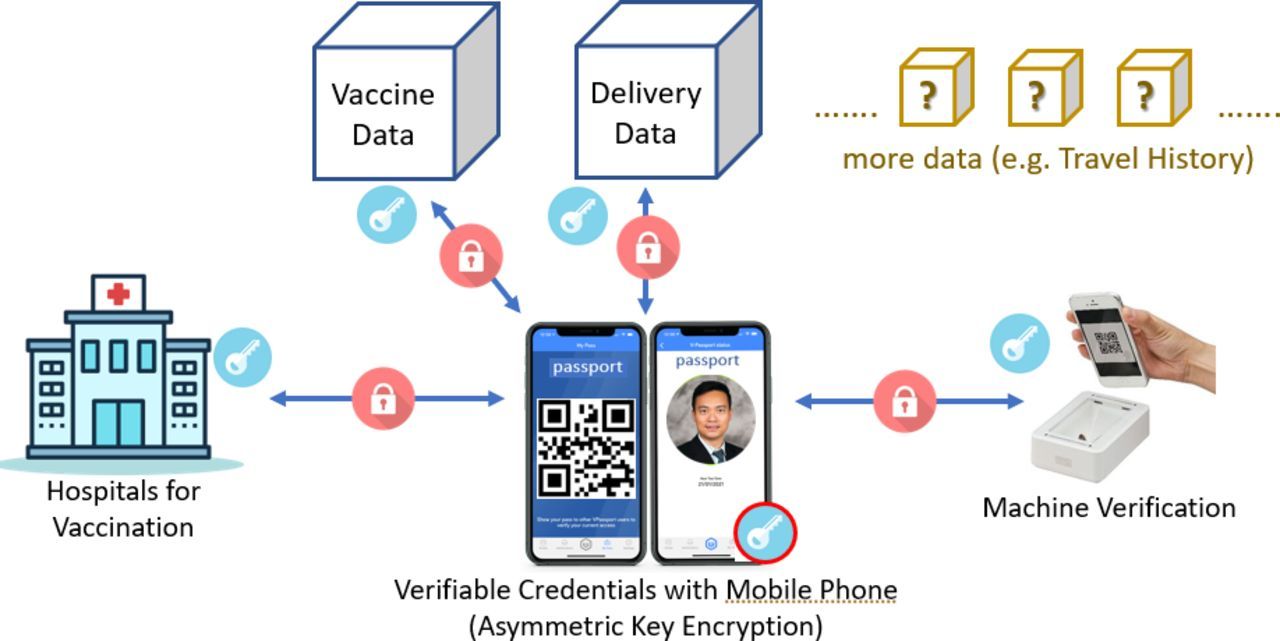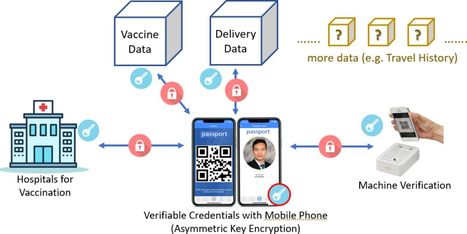blockchain

The enormous pressure of the increasing case numbers experienced during the COVID-19 pandemic has given rise to a variety of novel digital systems designed to provide solutions to unprecedented challenges in public health.
The field of algorithmic contact tracing, in particular, an area of research that had previously received limited attention, has moved into the spotlight as a crucial factor in containing the pandemic.
The use of digital tools to enable more robust and expedited contact tracing and notification, while maintaining privacy and trust in the data generated, is viewed as key to identifying chains of transmission and close contacts, and, consequently, to enabling effective case investigations.
Scaling these tools has never been more critical, as global case numbers have exceeded 100 million, as many asymptomatic patients remain undetected, and as COVID-19 variants begin to emerge around the world.
In this context, there is increasing attention on blockchain technology as a part of systems for enhanced digital algorithmic contact tracing and reporting. By analyzing the literature that has emerged from this trend, the common characteristics of the designs proposed become apparent.
An archetypal system architecture can be derived, taking these characteristics into consideration. However, assessing the utility of this architecture using a recognized evaluation framework shows that the added benefits and features of blockchain technology do not provide significant advantages over conventional centralized systems for algorithmic contact tracing and reporting.
From our study, it, therefore, seems that blockchain technology may provide a more significant benefit in other areas of public health beyond contact tracing.
more at https://publichealth.jmir.org/2021/4/e26460
Lire l'article complet sur : publichealth.jmir.org

As vaccination programmes are gradually launched by various jurisdictions, post-trial surveillance with real-world evidence is of utter importance for close monitoring of their safety and effectiveness. This paper introduces a vaccine passport concept implemented with blockchain technology. In the following, the methods of contact tracing and vaccine efficacy monitoring with intact personal privacy protection will be discussed.
Vaccine passports with health records
Data are an indispensable and valuable commodity in dealing with global health crises. The COVID-19 pandemic, a global public health emergency as declared by the WHO on 30 January 2020, has highlighted the importance of health data sharing. Data sharing at the early phase of an outbreak enabled healthcare professionals, researchers and policy makers in mastering information required for formulating strategies. Trusted dissemination channels are primarily government official records, peer-reviewed journals and authorised open online databases. Capitalising on these dissemination channels, governments and global scholars share important information for public health measures, from release of full viral genome sequences, pathological features and clinical phases of COVID-19 presentations, to development of diagnostic tests and potential medications, and potential therapeutic and prophylactic agents,to name but a few. Contact tracing is a vital strategy in finding out potential and hidden cases. A convincing showcase was made by Taiwan, where the authorities have used PCR alongside contact tracing in assessing the COVID-19’s transmission dynamics from the initial 100 confirmed cases This approach has much contributed to Taiwan’s success in keeping its health system intact with less than 900 cases even after a year into the pandemic.
Aside from contact tracing for infected patients, daily monitoring among community dwellers could be useful in infection control and resumption of normal social activities. Vaccine passports and digital contact tracing applications (apps) could be widely adopted in recording personal health profiles, contacts, and more importantly vaccination status in later stages. Inevitably, the concept of a vaccine passport led to a heated debate among people from all walks of life over its scientific evidence and ethical concerns.
Application of blockchain
Data sharing as an infection control measure only works on wide acceptance and adoption among citizens. Invariably, data security and integrity would come to the spotlight regarding data access and sharing issues; apart from data storage infrastructure, non-functional requirements such as availability, confidentiality and integrity are also fundamental to data storage, communication and mobilisation. Availability refers to the organised input of required data. Confidentiality is tantamount to authentic data access and usage authorisation, while data integrity ensures data safety against breaches.
Electronic health records and personal health records account for an immense portion of data in this digital era, with a 46% growth in 5 years. Nevertheless, solutions for data protection remain limited, primarily stored via content management system with encryption, in designated host servers. According to the Department of Health and Human Services of the USA, at least 3054 healthcare data infringements were observed from 2009 to 2019, involving leakage of 230 954 151 electronic medical records.A solution for data sharing with robust privacy protection is of paramount importance as well as urgently needed, and blockchain technology seems to be a qualified candidate.
Vaccine passport, as a form of portable health data, with adoption of blockchain technology, can be a promising tool for health monitoring and alerts while protecting personal privacy.
more at https://innovations.bmj.com/content/7/2/337
Lire l'article complet sur : innovations.bmj.com



